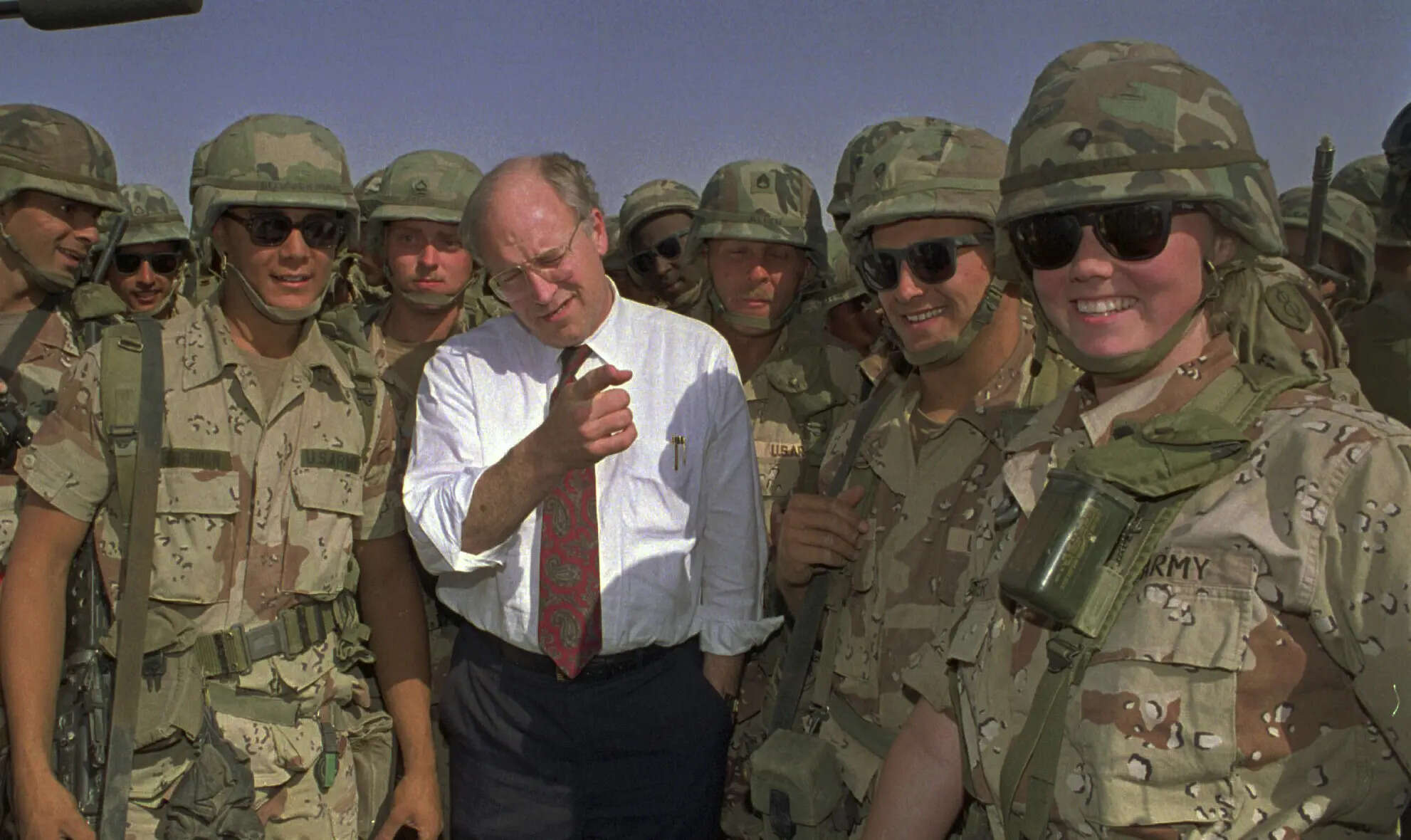Dick Cheney, America’s most powerful modern vice president and the architect of the “war on terror”, has died at 84. His death closes a turbulent chapter in US politics that began in the smoke of the Twin Towers and defined the country’s posture for a generation. For Cheney, 9/11 was not merely a national trauma; it was the moment that turned fear into philosophy and leadership into doctrine.The “Cheney Doctrine”, as it came to be known, was built on three pillars: strike first, ask later, and grant the executive the power to act without hesitation.
The morning that remade him
On the morning of September 11, 2001, Cheney was in the White House while President George W. Bush was in Florida. As hijacked planes struck New York and Washington, the vice president was ushered into the Presidential Emergency Operations Center beneath the West Wing.According to a report in The Washington Post, Cheney authorised US fighter jets to shoot down any aircraft approaching the capital that refused to divert. “If it looks threatening, take it out,” he told a military aide. Later, when asked about that decision, he said, “I wholeheartedly concurred in the decision that if the plane would not divert … our pilots were authorised to take them out.”In that subterranean bunker, Cheney’s worldview crystallised. The vice president who had long warned of unseen threats now faced one in real time. For him, survival demanded total, pre-emptive power.
Forging the doctrine
Pre-emption as preservationIn the months after 9/11, Cheney argued that the United States could no longer wait for proof before acting. “If we have learned anything from modern experience, it is this: the only way to protect this country against terrorism is to stay on the offensive,” he said in an October 2001 address. That logic became the moral scaffolding for the 2003 invasion of Iraq, where suspicions of weapons of mass destruction replaced verified intelligence.The unitary executiveCheney had long believed that the presidency had been weakened by Vietnam and Watergate. After 9/11, he sought to restore it to imperial strength. “We have to work the dark side, if you will,” he told Meet the Press. “A lot of what needs to be done here will have to be done quietly, without any discussion.” The comment became emblematic of the secrecy and centralisation that came to define post-9/11 Washington.Secrecy as security

FILE – Defense Secretary Dick Cheney poses with some of the U.S. Army troops stationed in southern Iraq in this May 7, 1991 file photo. (AP Photo/Bill Haber, File)
Cheney treated information like ammunition. According to reports, he resisted releasing records from his energy task force, classified interrogation practices, and built what one aide called a “shadow national security council”. He believed sunlight could blind as much as it could illuminate.The price of vigilanceThe Cheney Doctrine had consequences. “Enhanced interrogation” became the official euphemism for torture. Guantanamo Bay turned into a symbol of endless detention. The Patriot Act vastly expanded domestic surveillance.When the Senate Intelligence Committee later concluded that these methods were both brutal and ineffective, Cheney responded bluntly: “I’d do it again in a minute.” He never apologised. “It was the right thing to do then. I believed it then and I believe it now,” he said of the Iraq war. To him, regret was weakness, a luxury reserved for those who didn’t bear responsibility for national security.The irony of the afterlifeIn later years, Cheney was exiled from the party he once defined. His old ally Donald Rumsfeld was gone, George W. Bush had retreated to painting, and the Republican Party had turned populist under Donald Trump, whom Cheney branded “a coward” and “the greatest threat to our republic”.In a final act of political rebellion, the man who once embodied the hard right voted for Kamala Harris in 2024, citing “duty to the Constitution”. According to those close to him, he believed Trump’s defiance of the 2020 election was a greater danger to the republic than any foreign enemy.The final legacyCheney’s death is not just the end of a man but of an era when fear remade freedom and the line between security and supremacy blurred. The doctrine he forged endures in drone wars, mass surveillance, and the belief that safety outweighs transparency.For Dick Cheney, 9/11 did not change his politics. It completed them. It fused decades of suspicion, conviction, and discipline into one unyielding creed: that America must never wait to be struck again.Even in death, Cheney’s shadow lingers, a reminder that every democracy carries within it the instinct to protect itself, even at the cost of what makes it democratic. Go to Source




